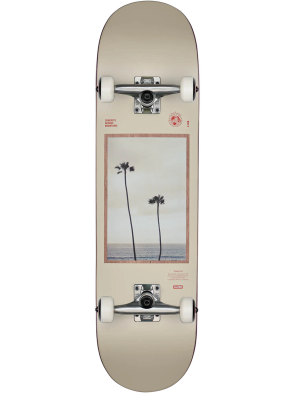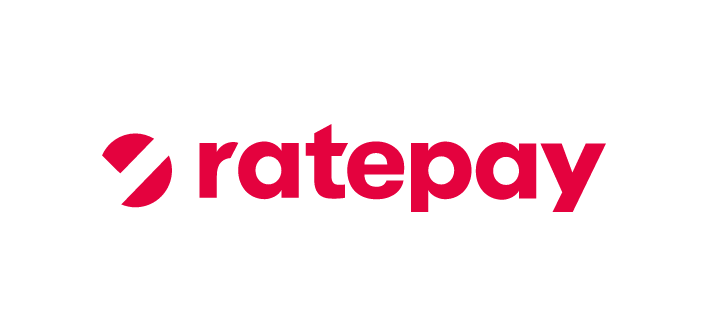
Globe
Three Australian brothers: Stephen, Peter and Matt Hill, emerged from the Melbourne underground skateboarding scene in the late 1970s and channeled their passion for skateboarding into founding a skateboard equipment import company, Hardcore Enterprises. Their fledgling company promoted skateboarding across Australia, first with local demonstrations and then through a series of national super skateboard tours in the 1980s. Hardcore both created new markets and contributed to the growth of the Australian boardsports industry.
From their involvement in licensing and distribution during the streetwear fashion explosion of the 1990s and the rise of surf-influenced apparel, the Hills soon developed their own diversified brands, including the skate shoe brand Globe Shoes. Following domestic success and Globe's subsequent expansion into North America and Europe, the company floated on the Australian Securities Exchange as Globe International in 2001.
The acquisition of a skateboard manufacturing facility in 2002 allowed Globe International to further expand its brand portfolio in all areas, including skate hardware, footwear and apparel. This allowed the company to not only invest in improved product design and technology while expanding and refining its production capabilities, but also to weather the subsequent economic downturns of the late 2000s.
Recognizing a strategic gap in the Australian market, Globe spent several years developing the workwear label FXD, which launched in 2012 and quickly captured a significant market share, as well as making initial inroads into international territories. In 2017, the company acquired San Diego-based apparel brand Salty Crew and immediately expanded its presence in surfing, fishing, diving and sailing both in North America and internationally. Later that year, the retro-inspired Impala roller skates were successfully launched around the world.
The company continues to thrive with a multi-brand approach that includes both licensed and own labels. As part of these constantly evolving brands, the company designs and produces high-quality products in three product categories: Apparel, Footwear and Skate Hardgoods. After 35 years of commitment dating back to the original enthusiasm of the company's founders and first employees, Globe International remains connected to its core markets.
We at Concretewave Skateshop have been stocking Globe boards since their introduction in 2010.
And since this year, we have also been convinced by the brand. Globe offers the best quality and well thought-out, innovative products, especially for beginners. The Droptrough complete longboard Prowler and Spearpoint, which offer unrivaled value for money, have been particularly popular with us since day one. Its asymmetrical droptrough shape is easy on the knees and the low center of gravity makes it easier for beginners to push, and thanks to the asymmetrical shape you always know where the front is. Those who prefer symmetrical shapes should take a look at the Geminon, droptrough, symmetrical and available in different lengths at concretewave.de. The Blazer in all its variants is one of the most popular minicruisers / cruisers, which stands out with its many designs and is the ideal everyday companion thanks to its compact size. The Geminon XL is a complete dancer longboard and a great entry-level board for anyone who wants to start dancing. You don't get this much wood for your money with any other brand. The Bannerstone is the push board from Globe Longboards for long distances. Very flat due to the deep drop and therefore ideal for touring. Those who like it classic should take a look at the Pinner in all its versions, designs and lengths. It doesn't get more classic than this pintail. Even skateboard beginners won't miss out at Globe.

1970: When we were kids. When Stephen and Peter Hill first got on a skateboard in 1972, they learned to skate in their neighborhood, built their own ramps and rode the train around Melbourne in search of new concrete to skate on.
1978: Watch them fly. The Sparx skateboard team was founded by Stephen and Peter along with their friends, who held demonstrations in Melbourne shopping centers and appeared in local print and TV media.
1979: Skate City Skate. Skate City Collingwood, one of the first indoor ramps in Melbourne, was opened with the active support of Stephen and Peter.
1984: Sneakers. The Hill brothers start running stalls at Camberwell Market selling sheepskins, custom-made sneakers and skateboard parts.
1985: Noise nuisance. Together with their friends, the Hills build the largest backyard skate ramp ever in Parkhill Road in Kew and then generate a lot of media attention to save it when their neighbors and the local council complain about the "noise". The business begins, Napier Street The Hills set up their first formal business, Universal Skateboard Importers, in Napier Street, Fitzroy, initially importing skateboard hardware from the USA and Asia. By the end of the year, they had taken over Australian distribution for the American skate brand Variflex.
1986: Hardcore, Kerr Street. The Hills rename their growing business Hardcore Enterprises and move around the corner to a larger warehouse on Kerr Street in Fitzroy. Stephen, Peter, Matt and their friends demonstrate Variflex skates at trade shows and shopping malls, traveling all over Victoria. City Square. Hardcore hosts the first of its Melbourne City Square events, the Variflex/Surf Dive 'n Ski Demo. Moomba. On the banks of the Yarra River, the Hills host one of the first major skate competitions in Australia, the Twisties/Variflex Ramp Jam at the annual Moomba Festival in Melbourne. Blast! Peter and Stephen write Blast! The Skateboard Book and promote it on "Good Morning Australia" and "The Early Bird Show", among others. The book and its sequel sell tens of thousands of copies and promote the development of public skateparks across Australia. Snow. Hardcore has helped to establish snowboarding in Australia and distributes both Burton and Sims snowboard products. Hardcore also supports efforts to legalize snowboarding on Victoria's snowfields. Snakes on tour. The Variflex tour with Allen Losi, the first American pro skater in Australia in over a decade, takes in the Big M Ramp Trash at the Royal Melbourne Show and demos in Newcastle and Martin Place, Sydney. Footage from the tour will be used to make the first hardcore skate video Snakes on Tour, premiering in a Melbourne movie theater later this year.
1987: Departure for the States. The Hills begin a trip to the USA and meet up with Lance Mountain and other professional skaters in Los Angeles. Easter Tours. The 100% Mambo Hardcore Easter Pro Tour is the start of an Australian skateboarding tradition, heading to Torquay, Melbourne, Brisbane and Sydney with Tony Hawk, Christian Hosoi and other leading US pros. The Snake Pit. With the support of Hardcore, Gregor Rankine opens one of Australia's first skate-only stores, Snake Pit, on Brunswick Street in Fitzroy, which is later followed by a second store on Chapel Street in Prahran. Ramp Riot. The first Hardcore "Ramp Riot" takes place in Torquay, including the first Australian skateboarding titles won by Hardcore-sponsored skater Lee Ralph, and is featured in a highly visible 60 Minutes television feature.
1988: Streetwear, Yarra Street. Hardcore renovates an old glue factory and moves to new premises in Yarra Street, Abbotsford, as Vision Streetwear distribution leads to the first formal licensing agreements for apparel and accessories. The next year, Hardcore establishes Die Hard distribution for apparel and footwear licenses. Skate-Tainment. Hardcore produces the Five40 Skateboarding magazine to showcase the Australian skate scene. Skate events include the Resurrection Easter Tour with a demo at the Sydney Opera House, Prahran Snake Pit events and the second Ramp Riot in Torquay later in the year.
1989: Stüssy. The Hills invest in the Australian Stüssy licensee Jim Fisher and work on a rapid expansion of the business. Super Skate Tours. As well as the snowboarding events at Mt Buller, the Easter tours continue and the biggest event of this era, Ramp Riot III, takes place at Melbourne's historic Festival Hall, featuring top American pros Mark Gonzales, Jason Lee and other up-and-coming Australian pros.
1990: Street Skating. Skateboarding styles evolve from vert to street, while Hardcore produces Street Noise magazine and supports the Easter Tour, Carpark Demos and Ramp Riot IV in Prahran. In the course of these changes, the company also begins to distribute new brands such as World Industries, Blind, Girl and Chocolate in the 1990s.
1991: Mooks. The first company-owned brand, Mooks, is founded by graphic designer Richard Allan in collaboration with Peter and Stephen. Mossimo. Stephen and Peter meet Mossimo Giannulli to secure the Australian license for the new Californian brand Mossimo. Over the Ditch. Hardcore expands beyond Australia's borders and opens an office and warehouse in Auckland, New Zealand.
1992: Sista. In collaboration with Stüssy, Die Hard founds a new own brand, Sista, to offer a women's line inspired by Stüssy. Further licenses are acquired, including the US label Split. Stay Hardcore. Despite the lack of skate industry activity, Hardcore promotes the World Industries Skate Tour across Australia and hosts the 6th Ramp Riot skate event in Prahran.
1993: Growing categories. The first Mooks womenswear collection is launched. Mossimo womenswear is developed under the Australian label before Mossimo Inc. launches in the USA along with Mossimo swimwear.
1994: The birth of Globe. Driven by the urge to take control of their own destiny and offer superior skate shoes, Hardcore founds another new private label as the first designs and sourcing for Globe shoes begin. Retail Fashion. The first Mooks concept store designed by Marc Newson opens on Chapel Street in Prahran.
1995: An international base. Flockhart Street Hardcore and Die Hard continue to grow and move to larger premises in Flockhart Street, Abbotsford, while the first steps are taken in the American market with Globe shoes and Mooks is introduced to the UK market. Don't Get Them Wet. Skaters Al Boglio, Andrew Currie and Jason Ellis are the first Australian riders on Globe shoes.
1996: Home of the brave, Oregon Court. Matt Hill and Gary Valentine establish the North American division of Globe and set up an office and warehouse in Oregon Court, Torrance, while Grind Distribution in France begins distributing Globe footwear in Europe. Domestic expansion. Hardcore's first office opens in Queensland, the FreshJive label receives a license for Australasia and the company hosts its first major skate music party on Flockhart Street.
1997: Chet and Rodney. Chet Thomas and Rodney Mullen join the Globe skate team as the first international riders and begin design and development in Globe's North American division. Surfing is the name of the game. Australian champion surfer Mark 'Occy' Occhilupo is sponsored by Globe along with two young American twins, CJ & Damien Hobgood, as Globe builds its surf team. Grunt. Ecko Unltd has the license for Australasia as Flockhart Street hosts the second annual skate/rock party "Grunt" where Tony Hawk will be skating the hardcore parking ramp. Mooks International. Following its huge success in the Australian and UK markets, Mooks is also launched in the USA and Japan.
1998: M-One-11 Die Hard successfully launches another new streetwear brand, M-One-11. 900 Degrees. The third annual industry party on Flockhart Street was renamed 900 Degrees and has since established itself as a "money can't buy" experience. Canvas. Filmed in and around Hardcore's Australian Easter skate tour with Rodney Mullen and others, Canvas: The skateboard documentary, premieres in San Diego and is successfully released on video worldwide.
1999: Skate like a girl. The brands Independent, Four Star, World Industries and Paul Frank are licensed by Die Hard in Australia, while 900 Degrees 'The Heist' takes place again on Flockhart Street and one of the first skate events for women, the Hardcore Girls Street Skate Jam, is held at the Sailyards Skate Park in Melbourne.
Globe shoes sponsors the Monster Mastership in Dortmund

We love LA! Crenshaw Boulevard. Globe's American office moves to larger premises on Crenshaw Boulevard in Torrance. Next wave. Globe continues to expand its surf team with champion surfers Layne Beachley and Taj Burrow joining Globe Shoes.
2000: Globe International. The Hardcore, Die Hard and Globe US divisions are merged to form Globe International as the company prepares to go public on the Australian Stock Exchange. Gallaz. Globe launches a new brand of women's action sports footwear, Gallaz, with a range that includes a Layne Beachley Pro Model shoe, and supports the Gallaz Girls Street Jam 2 in Melbourne. Convention. The fifth 900 Degrees party takes place on Flockhart Street and is combined with the Globe Shoes Convention, the first major international sales gathering of company employees and sales representatives from around the world.
2001: Globe goes public. Against the backdrop of the biggest 900-degree party to date and huge media interest, Globe successfully goes public on the Australian stock exchange. To each his own. Globe presents its first skate video Opinion: To each his own, at a world premiere in Los Angeles. TicTac. Globe supports the production of the documentary TicTac 2 Heelflip: Australia's Skateboarding History", which will be broadcast on Australian television and is enjoying international success at film festivals and in home entertainment. Global Headquarters, Lorimer Street. Following the successful IPO, Globe International moves into its new headquarters and warehouse on Lorimer Street in Port Melbourne.
2002: The Globe World Cup. The first Globe World Cup Skateboarding takes place at Melbourne's famous Rod Laver Arena, the venue for the Australian Tennis Open. The festival of skate and youth culture includes Tony Hawk's first 900 Degrees event in the Southern Hemisphere as well as a who's who of skateboarding, the Gallaz All Girls Street Jam and a 900 Degrees party. South Aviation Boulevard .Globe International achieves promised financials with the acquisition of Dwindle Distribution and a new manufacturing partnership in China and relocates its U.S. office to South Aviation Boulevard, El Segundo in Los Angeles.
2003: Globe World Cup II. The core business of Globe International continues while the second Globe World Cup Skateboarding takes place in Melbourne.
2004: O Brother, the CEO. Matt Hill is appointed as the new CEO of Globe International and begins reorganizing the corporate and strategic structure, including the expansion of Globe's European division. Premieres and tours. In addition to the third Globe World Cup Skateboarding event, Globe International celebrates with major worldwide premiere tours, the release of the first video for the Almost Skate Team (Round Three) and the Globe Surf Team (Somewhere Anywhere Everywhere).
2005: Smells like Rod Laver. Globe World Cup skateboarding continues, including the premiere of Blind's first major video in a decade, "What if?" in front of the crowds at Rod Laver Arena. Äpples. Thrasher Skater of the Year 2003, Mark Appleyard, joins the Globe skate team. The perfect storm. Globe successfully hosts its first major surf event, the Globe WCT Fiji, in unique conditions and is described by the surfers themselves as the best event of this year's tour.
2006: Restructuring. Global Assault!!... the last Rod Laver event of the decade is held, while Globe International completes a strategic review of the company and announces a major turnaround in the business. Once upon a time in Fiji. The second Globe WCT Fiji comes to an end and Globe's Damien Hobgood wins the title in a fairytale finish. The machine is not angry. After the Fiji event that raised the profile of surfing, Globe unveils its second major surf video Secret Machine, complete with a conspiratorial marketing campaign. United by destiny. Chris Haslam and David Gonzalez join Globe and begin working with the rest of the skate team on an industry-first concept: United by Fate, a series of episodic skate videos released online for free.

2007: The empire splits up, Barkly Street. Globe International sells its streetwear division to Pacific Brands and moves to Barkly Street in St. Kilda to focus on its own Globe and Hardcore brands. In America, the World Industries brand is sold to focus Dwindle Distribution's efforts on its remaining core brands. Money for blood. Globe hosts a three-day skate festival in Queensland, including the Tizzy at Pizzy and Double Stack Cash Attack on the Gold Coast. Dion. Globe signs Dion Agius as a "free surfer" who focuses more on a surf-based lifestyle than competitions, and launches the first blog-style website .tv/dion.
2008: Slaughter at the Opera. Against the backdrop of the global financial crisis, the credit crunch and the bank collapse, Globe organizes the skate event Slaughter at the Opera in front of the iconic Sydney Opera House. Back to Fiji. After a year's break, Globe Pro Fiji returns to showcase some of the world's best surfers.
2010: Return, Fennell Street. Globe relocates its Australian headquarters to Fennell Street in Port Melbourne and establishes a new clothing division, 4Front, which licenses the streetwear brand Obey, among others. Globe Hardgoods. Globe launches its own line of skate hardgoods (skateboards, cruisers and longboards) designed in Los Angeles and Melbourne and manufactured in its DSM factory in China.
2011: Year Zero. Globe releases its apocalyptic surf movie Year Zero, which is widely praised, including winning Movie of the Year in the Surfer Poll. FXD workwear. FXD, Function By Design, a new workwear brand, is launched in Australia. Electric Blue Heaven. The Globe short film Electric Blue Heaven introduces the world to high level surfing in a desert wave pool and wins the Surfer's Poll Short Film of the Year.

2013: Globe apparel. Following the development and expansion of Globe's apparel offering, the new Los Angered footwear and capsule collection is launched at American Rag in Los Angeles. The Cabin. A new Globe concept store opens on Acland Street in St. Kilda. It follows the store in Burleigh Heads (2012), Bondi (2014) and Canggu in Bali (2016). Stüssy is back. The Australian Stüssy license returns to Globe International, which is part of the 4Front division.
2014: Strange Rumblings. Globe's surf movie Strange Rumblings in Shangri-LA premieres in several international cities and wins the Surfer Poll Movie of the Year.
2015: Bowl Riot. Globe supports the first competition in the St. Kilda skatepark, the Bowl Riot, the Australian U16 skateboarding title. Unemployable. To mark its 30th anniversary, Globe International publishes the illustrated book Unemployable: 30 Years of Hardcore, Skate and Street with events at the State Library of Victoria in Melbourne and the Roosevelt Hotel in Hollywood, Los Angeles. The book is published worldwide by Thames & Hudson and is also nominated for an Australian Book Designers Award.

2017: Salty Crew. Founded in 2014, San Diego-based surf, fish, dive and sail brand Salty Crew has joined Globe International to continue its rapid expansion. New stores. Globe flagship stores were opened in the strategic neighborhoods of Hermosa Beach, Los Angeles, and Sheung Wan, Hong Kong. Snake Session. Globe hosted the first annual Snake Session store vs. store battle on the Globe HQ ramp in El Segundo. Impala roller skates launched. Impala dates back to the 70's when people skated on the boardwalk or danced at the roller disco. The Impala team is made up of a group of girls who have a passion for roller skating, skateboarding and surfing.
2018: Oz Snake Session. Invited skaters from all over Australia and New Zealand met on the Globe ramp in Port Melbourne for a no-holds-barred "store vs. store" skate clash. Launch of the FXD boots. FXD entered the work boot category with the lightweight WB.1 and WB.2 Nitrolite boots, which were quickly adopted by the market. First Salty Crew flagship store. The first dedicated Salty Crew store opens in Hossegor, France. Chairman of the Board of Directors. Paul Isherwood passes away at the age of 80 after 15 years as Chairman of Globe International. Originally appointed to the Board in 2000, Paul Isherwood oversaw the company's IPO as well as good and difficult times. Appointed Chairman in 2003, he made an impressive contribution of leadership, diligence and wit for 18 years.
2019: Snake Sessions return. New events at the Globe office ramps in Los Angeles and Melbourne for the Shop vs. Shop competitions, as well as a Snake premiere at the European Globe headquarters in Hossegor, France. Dwindle sale. Globe International sells Dwindle Distribution and the associated brands, but retains the now expanded production base in China. Sink Or Swim. The film Sink or Swim by Salty Crew premieres in San Diego, followed by a US premiere tour. About the Dot. After six years of research and development, the Dot electric skateboard is launched in Australia, the US and Europe.
2020: The skateboard factory. Despite the impact of the global COVID-19 closures, Globe remains committed to skateboard manufacturing and continues to expand its skate hardware production base in China by contributing to the environmentally friendly modernization of the factory and creating additional capacity.
2021: Globe X Eames. Globe begins its collaboration with the Eames Office, starting with a unique collection of eucalyptus skateboards that can be seen in the "Eames Office: 80 Years of Design" exhibition at Isetan in Tokyo.















